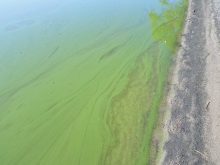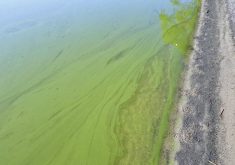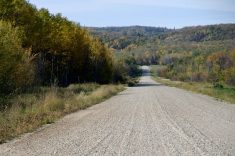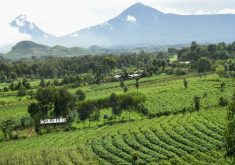In response to the Co-operator’s July 13 article, “Water strategy action plan launched”.
During a press event on July 17, Manitoba Environment and Climate Minister Kevin Klein noted that, in 2013, Lake Winnipeg was designated the most polluted lake in Canada. He went on to say that, since 2016, the Manitoba government has been working diligently to protect the province’s lakes, and ensure they are clean and accessible for future generations.
It will take a heck of a lot more than just money to save our lake.
Read Also

Pragmatism prevails for farmers in Canada-China trade talks
Canada’s trade concessions from China is a good news story for Canadian farmers, even if the U.S. Trump administration may not like it.
Ten years ago, Lake Winnipeg won the “most threatened lake of the year award,” a testament to bad, short-sighted and ill-informed decisions.
The only way to address this situation is through political honesty, hard work and making tough choices and sticking to them. Our future and the future of all our waters depends on such action.
There has to be action with a determined will of the people and governments to save Lake Winnipeg and our water sources. The continual rhetorical propaganda that we have been subjected to has the effects of a placebo. The lake has literally been studied to death.
I, along with many Manitobans, have been voicing grave concerns about Lake Winnipeg and how the algae situation has amassed in the past 25 years.
It will not be possible for Lake Winnipeg or any of our water sources to survive as long as politics keeps playing the deceitful role of patty-caking the needed efforts of recovery by dealing with the symptoms. Wherever possible, nutrient pollution must be eliminated.
In March, Canada pledged funding for the Great Lakes after Prime Minister Justin Trudeau’s talks with U.S. President Joe Biden.
Laws are needed to protect the Great Lakes from farm runoff, according to a joint commission study. The study is quoted as reporting that “voluntary measures to protect the Great Lakes from farm manure (have) proven inefficient and governments should now turn their minds to legislation.”
Does that sound familiar? It should, for it also applies to Lake Winnipeg.
Manitobans and renowned scientists have been expressing those same views for years about the polluted situation of those waters. The lake is not polluting itself.
Manitoba must initiate action to deal with the source and cause of pollution.
Yes, protecting our lake for future generations is a must.
John Fefchak
Virden, Man.
















